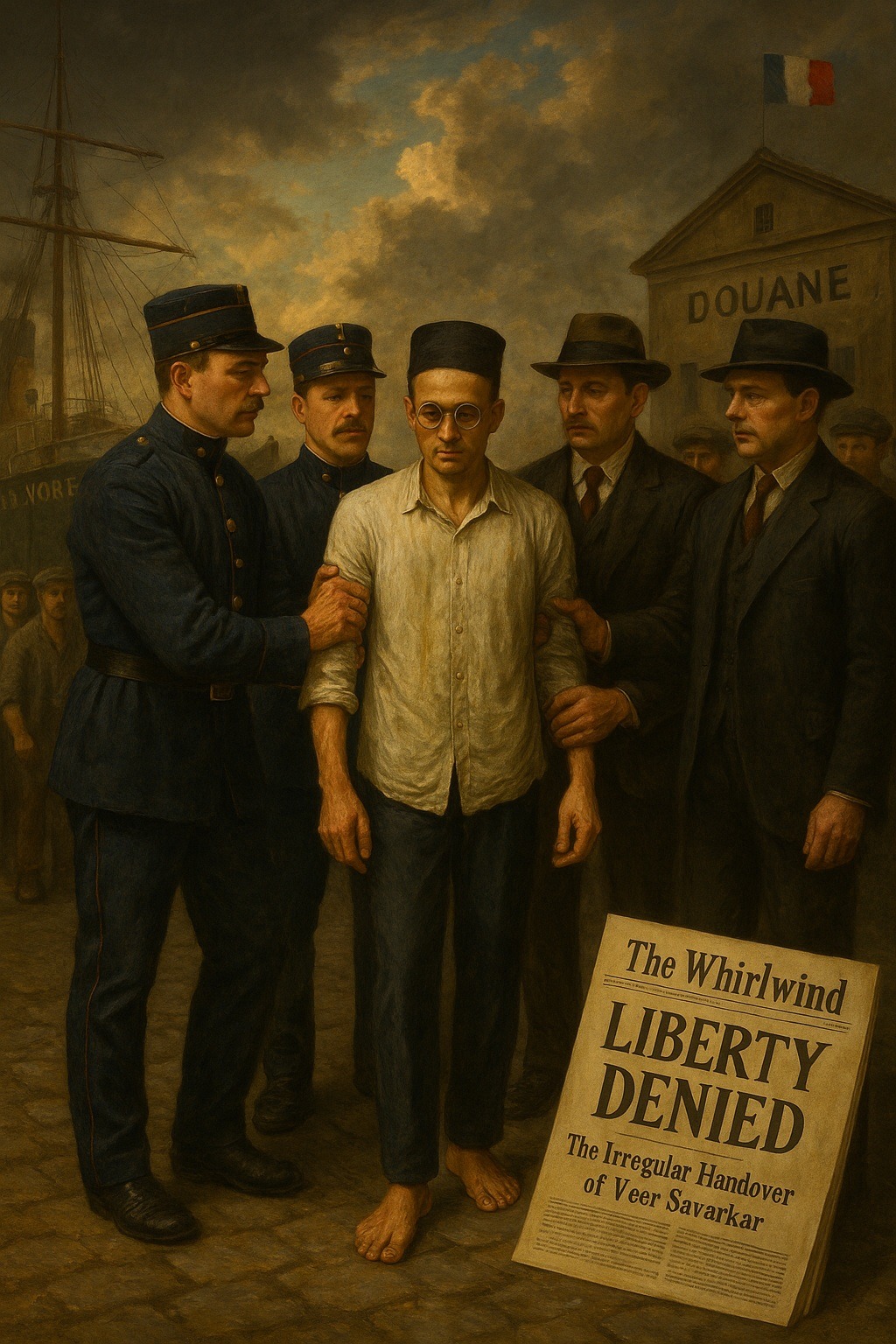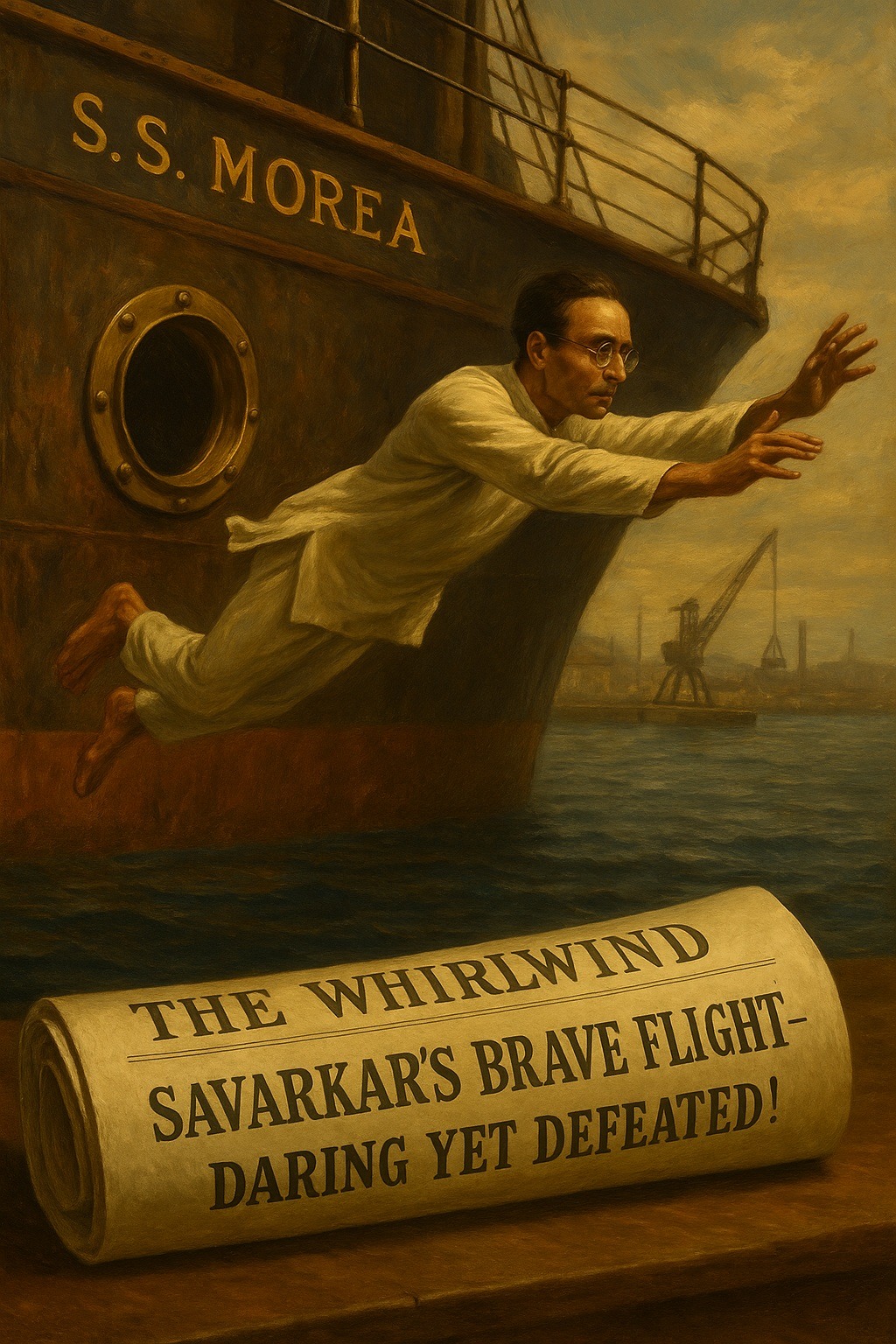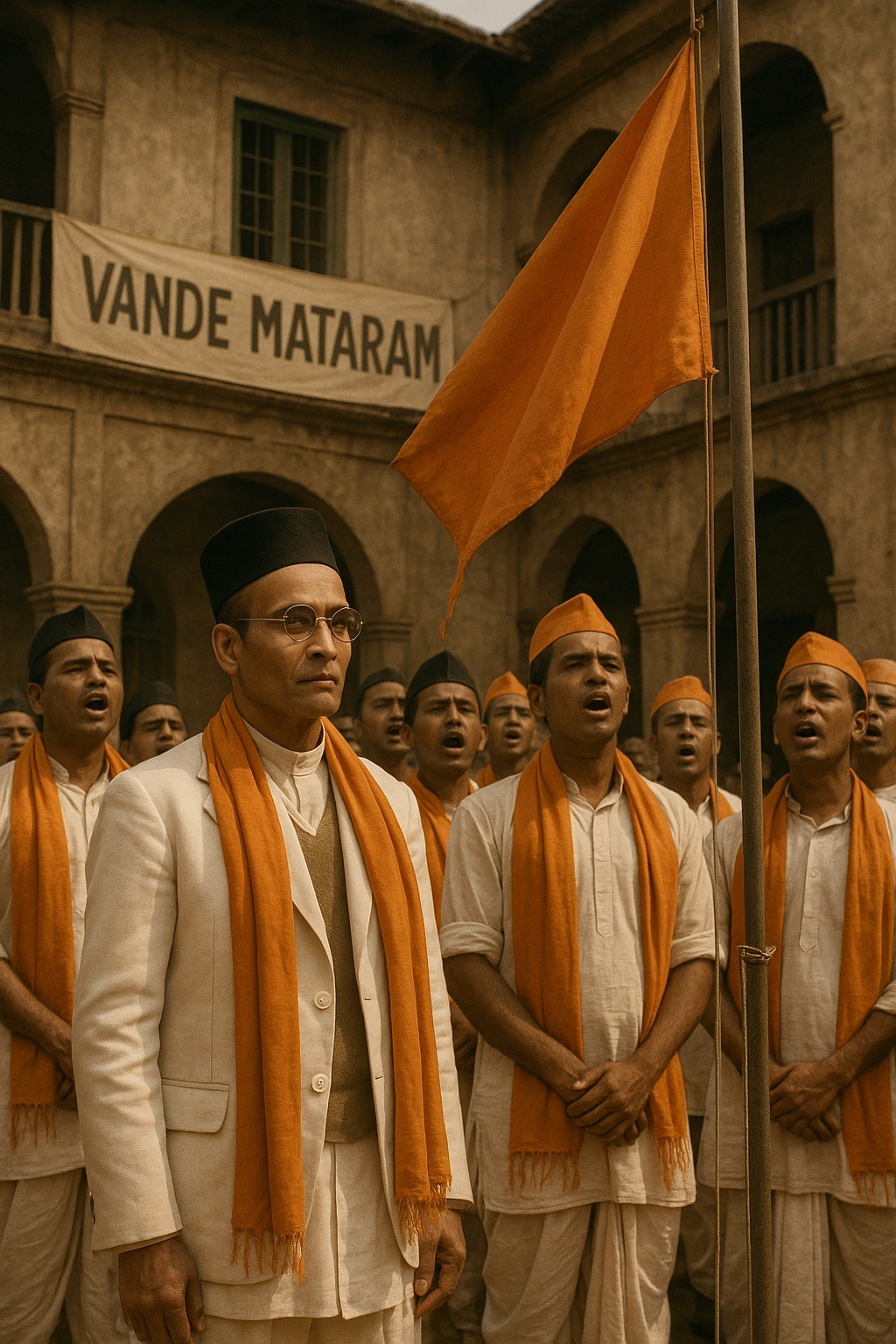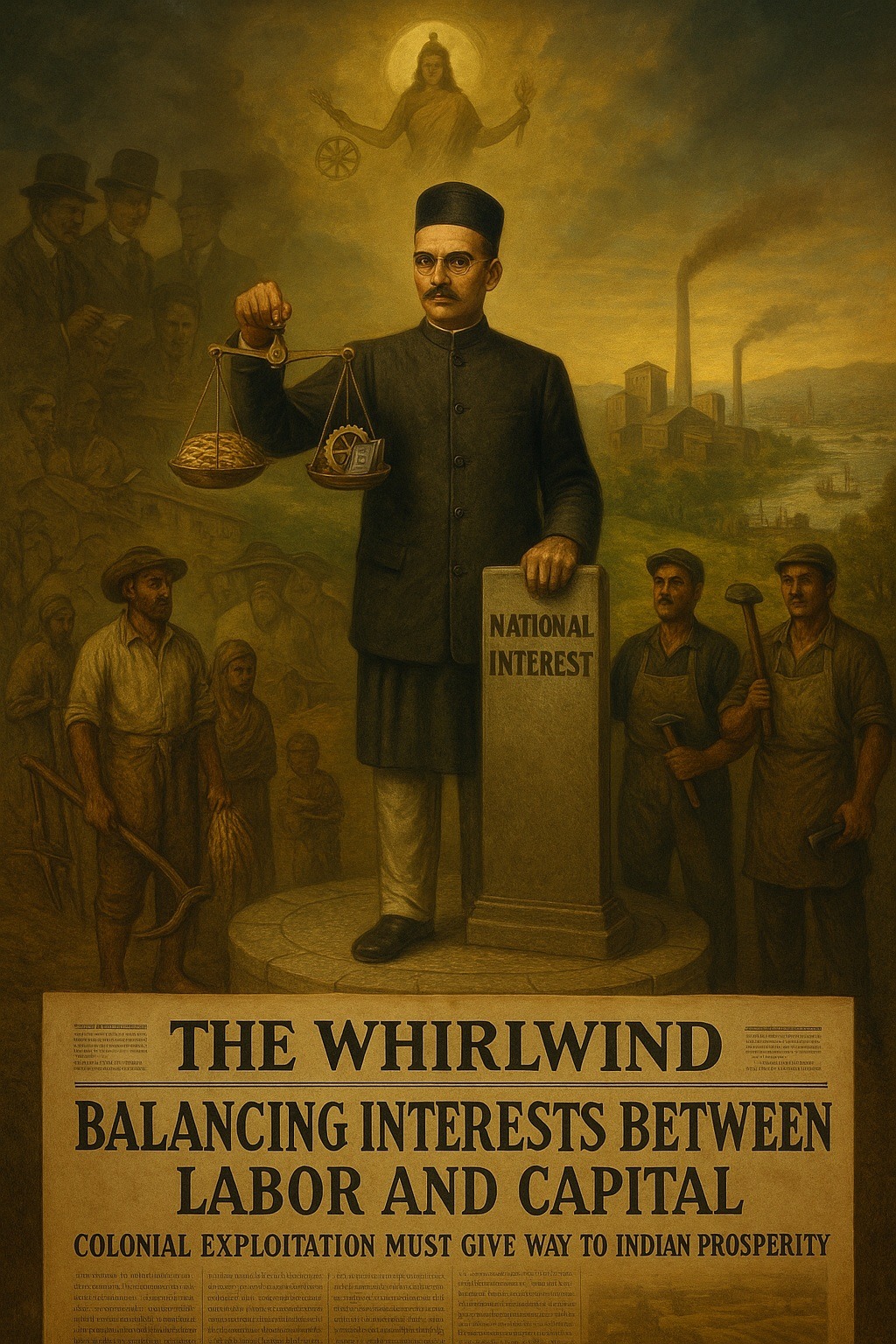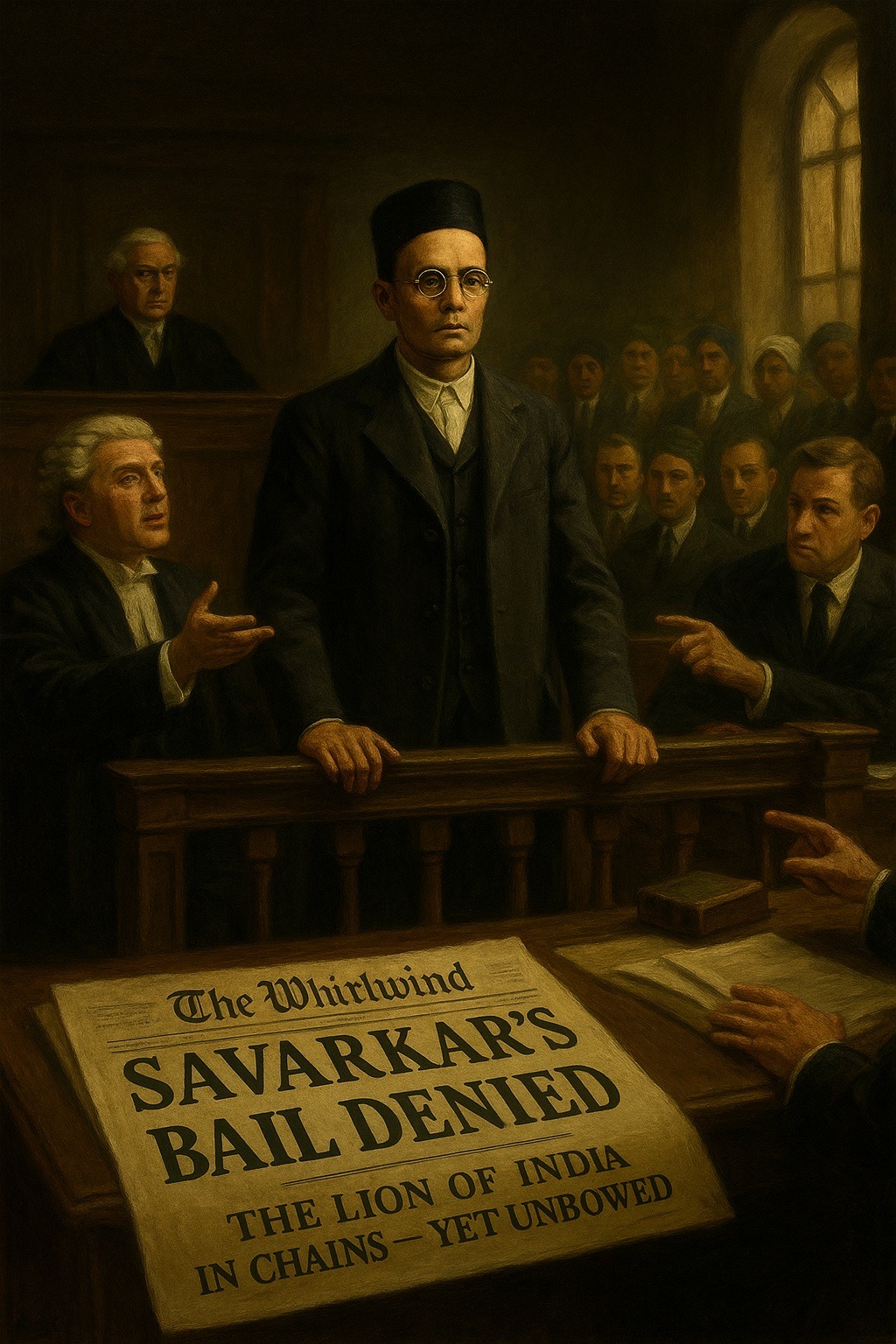Tag: BritishRaj
-
In the historiography of India’s struggle for independence, references typically focus on imprisonment, exile, or capital punishment as instruments of colonial repression. Less frequently noted, however, is the annulment of academic qualifications as a form of political sanction. The case of Vinayak Damodar (Veer) Savarkar (1883–1966) stands out in this regard: he became the first…
-
In July 1910, Vinayak Damodar (Veer) Savarkar attempted one of the most discussed escapes in the history of anti-colonial struggles. After leaping through a porthole of the British steamer S.S. Morea as it docked at Marseilles, he swam ashore and set foot on French soil – intending to claim political asylum. The Irregular Handover of…
-
On the morning of July 8, 1910, Vinayak Damodar (Veer) Savarkar managed to escape from his British guards aboard the steamer S.S. Morea, anchored in the French harbor of Marseille. After a brief swim from the docked ship to the quay, he set foot on French soil. Savarkar’s Plan Behind the Escape By reaching the…
-
Vinayak Damodar (Veer) Savarkar’s escape attempt at the French port of Marseilles on July 8, 1910, remains one of the most daring and dramatic episodes in the history of Indian freedom fighters in Europe. Years later, in his final press interview, Savarkar himself described it as the most memorable event of his life. What unfolded…
-
Every year, 7 September is observed as Vande Mataram Day, commemorating the pivotal role of this iconic song in India’s struggle for independence. The date recalls the decision of the Indian National Congress (INC) in 1905 to adopt Vande Mataram at the height of the Swadeshi Movement against the Partition of Bengal. More than a…
-
Economic Dimension of Hindutva, Part 9; Savarkar’s Economic Principles (5/13) The balance between labor and capital has long been a subject of debate in economic and political thought. Vinayak Damodar (Veer) Savarkar, known for his nationalist and revolutionary ideas, also put forward an economic perspective that sought to harmonize the interests of labor and capital…
-
Religious Tradition and Political Struggle Traditional Roots of the Festival Anant Chaturdashi, observed on the 14th day of the bright fortnight of Bhadrapada (August–September), is one of India’s important Hindu festivals. Traditionally dedicated to Lord Vishnu as the infinite (Anant) sustainer of the universe, it revolves around the tying of the sacred Anant Sutra –…
-
On 1 July 1910, Vinayak Damodar Savarkar was removed from Brixton Prison under the heaviest of guards. His fate had been sealed: the British authorities had resolved to send him back to India to face trial in connection with revolutionary activities and the Nasik Conspiracy Case. For this purpose, he was placed aboard the French…
-
The dramatic London chapter of Vinayak Damodar (Veer) Savarkar’s life reached a decisive turning point in March 1910. On Sunday, 13 March 1910, Savarkar was arrested at Victoria Station while waiting for a train. For months, the British authorities had been keeping him under close surveillance, suspecting his involvement in revolutionary networks that had sprung…


